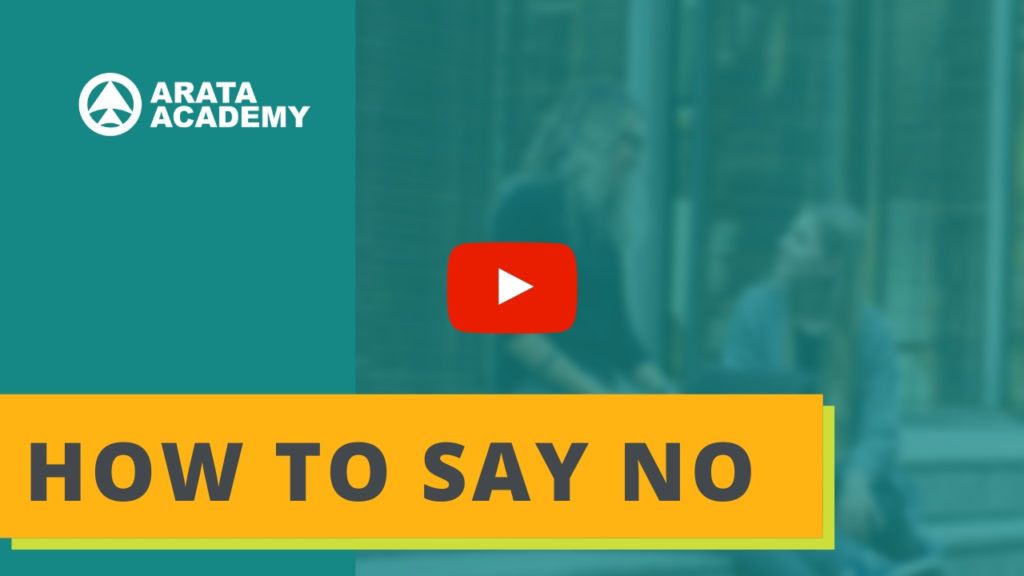Productivity Arata! Before I tell you the story of the two wolves living inside of you, let’s begin by understanding your thoughts and your emotions.
Some thoughts are labelled negative because they can lead to anxiety, anger, rage, jealousy, destructive desires. Although we call them NEGATIVE thoughts, I want you to understand that there’s nothing wrong with feeling that way every now and then.
1. It’s normal to have negative thoughts.
Anger can help you set limits and not tolerate abuse. Worry can help you to do your planning. In other words, many thoughts that we label negative are normal, and if well managed they may contribute to a full life. In fact, it would be really weird to live a life without any of these negative thoughts.
What you don’t want is to be overwhelmed by negative thoughts.
The inability to healthily cope with negative thoughts can lead to rage attacks, addiction problems, paralysis and failure to handle life’s difficulties.
2. Learn how to deal with negative thoughts.
If you give in to negative thoughts, you can make choices that will have undesirable consequences.
You may end up saying things you didn’t mean to say, you may disrespectfully argue with people, in short, because of not knowing how to deal with negative thoughts you may do something you didn’t mean to, and then you may regret. But once those things are done, you will have to face the consequences.
Whenever we talk about productivity here at Arata Academy, we long for a full life in which we approach our desired results.
That’s why today’s episode of the series Productivity Arata brings a special story that represents an important struggle between positive thoughts and negative thoughts.
It was a cold night and two Indians where talking around a campfire. A wise old Indian and a young, inexperienced Indian.
The old Indian said to the young one:
There’s a terrible struggle going on inside of me. It’s an intense fight between two wolves.
One wolf is evil. It’s angry, it’s arrogant, it’s greedy, it carries guilt, resentment, envy, bigotry, prejudice. It only cares about itself. And it also has weaknesses: it’s got many fears, it’s suspicious, it’s got anxiety, it goes through inferiority moments.
The other wolf is good. It’s happy, it’s peaceful, it loves, it carries hope, it’s got humbleness, it’s got kindness, serenity, empathy, generosity. It’s a brave, true wolf. It’s got mercy, it’s got faith, it wishes the best for everyone. It’s innocent and sometimes relies too much on others, and then it gets hurt.
Both wolves are very powerful.
And they are not just fighting within myself.
They are also fighting within you and within each member of our tribe.
The young man reflected on that and then asked the old Indian: which wolf will win?
The old man thought for a moment before answering.
And then he said, the winner will be the wolf I feed.
Your thoughts can be your worst enemy if you feed them the wrong way.
Pause the video now and consider: right now, what kind of thoughts have you been feeding? If you want, try to remember some recent conflict you’ve had with someone at work, in your family or in your circle of friends. Reflect on that and write it down in your notebook. Which wolf have you been feeding?
If there was one single message that you needed to absorb from this video, it would be: remember that at every moment of your life you always have the power to choose which wolf you will feed.
In day-to-day life, it’s natural to have conflicts. In order to overcome those conflicts, you need communication, dialogue and reconciliation. Communication techniques are easy to learn – you can find out how to get assertiveness and clarity in your communication in our fast course “How to Say No”, by visiting this link.
Communicating is very simple. The hardest part is the struggle going on within you. On the one hand, your bad wolf wants to continue fighting. And the good wolf wants to see peace and happiness for all.
3. Which wolf will you choose to feed?
Can you completely forgive a person who asks you for forgiveness? Are you humble enough to acknowledge your own mistakes? Are you truly curious to understand the other person’s point of view? Have you got the courage to learn how to clearly express and communicate your needs?
And now a very important question. Write it down in your notebook, so you can reflect on it:
Do you know how to set healthy boundaries in your life? Can you say no to whatever is bad for you? Can you say yes to whatever is positive and enriching in your life?
Only when you accept that you are human, that you have your weaknesses and your flaws, you will be able to acknowledge the existence of the two wolves inside of you. No one is only an angel or a demon. Nobody is an angel because even the kindest person will have anger, a will for revenge, a will for punishment. No one is a demon because no one is completely evil. Even the toughest person of all wants to love, wishes to be acknowledged, wants to be part of a group, wants to find shelter and acceptance.
If on the one hand you long for peace and want to have the ability to forgive and reconnect with someone who has hurt you at some point, on the other hand it’s also normal that you feel scared and afraid of becoming vulnerable and end up hurting yourself and regretting it afterwards. That’s a kind of situation where conflicting desires end up hampering decision making.
These are the wolves fighting within you.
4. Practical script for resolving inner conflicts.
First, you must achieve a greater awareness of that inner struggle.
The story of the two wolves is excellent for you to remember this lesson.
If you don’t pay attention, you will suddenly find yourself in a kind of undesirable situation. That’s lack of awareness, of perception of what’s happening.
For instance, you have argued with a person, ended up regretting it and told them that you’ve forgiven them… but deep inside, you want them to change. I mean, there are two wolves there: the wolf that forgives, as well as the wolf that holds a grudge.
The second step is to determine what your needs are.
Where do you want to get to? And which wolf do you need to feed in order to get there?
If you want to improve your relationship with that person, if you want to appreciate that person, if you want to respect that person, then what you need to do is communicate clearly how much you value and respect them.
In that conversation, note that at the same time there will also be a feeling of desire to control the person, to force them to change, the bitter taste of resentment because they aren’t doing what you wanted them to. That is the bad wolf within you. Just acknowledge that it exists, but don’t feed it.
As a third step, note that the other person has also got two wolves inside of them.
On the one hand, they probably want to approach you, and on the other hand they probably have feelings of anger as well, because of the argument you two had. Or they may be afraid of being let down.
Help that person to also realise the different types of emotions and ask them to rebuild their relationship with you.
You don’t need to explain them the idea of the two wolves (if you think that it’s the case, send her this video’s link), but the most important thing is to give them the necessary resources for them to feed their positive emotions.
Each of the two wolves can lead your life into different directions. You are the one who will choose which wolf you will feed.
You can follow a path with more conflict or more seclusion, or, depending on your choices, you can find a peaceful approach.
To find the way that brings you more satisfaction, it’s important that you know and learn how to set boundaries in your life.
Write down this final tip: It’s critical that you know what you will allow, what you will accept and what you won’t tolerate.
When you respect your own boundaries, people around you will also respect you more. To learn how to better manage your emotions, how to improve your communication, and how to establish healthy boundaries, please visit this link here.
The course “How to Say No” will provide you the training you need to conquer the wolves inside of you and choose which wolf you will feed. That’s emotional intelligence and is one of several lessons you will have with full access to the course.

